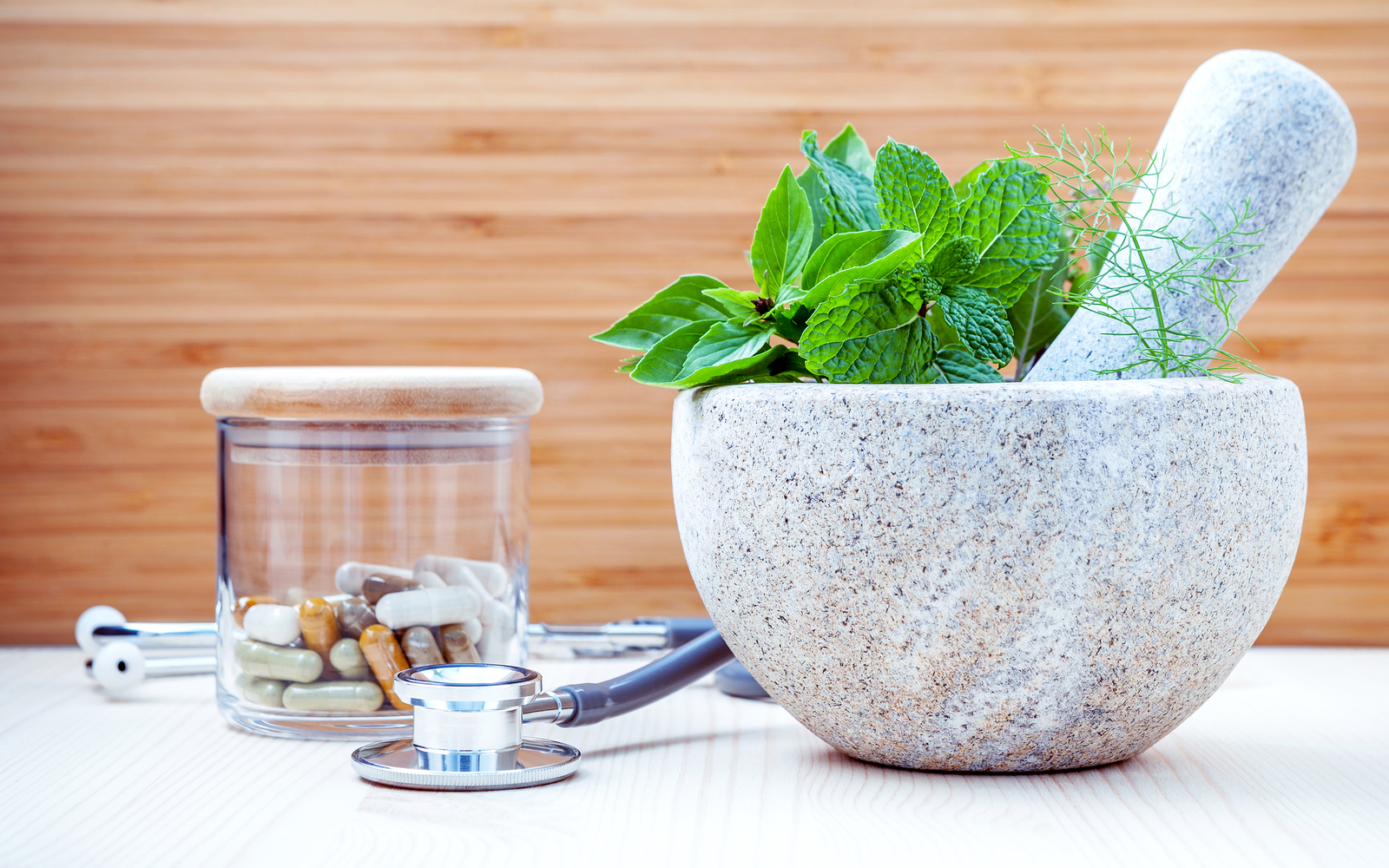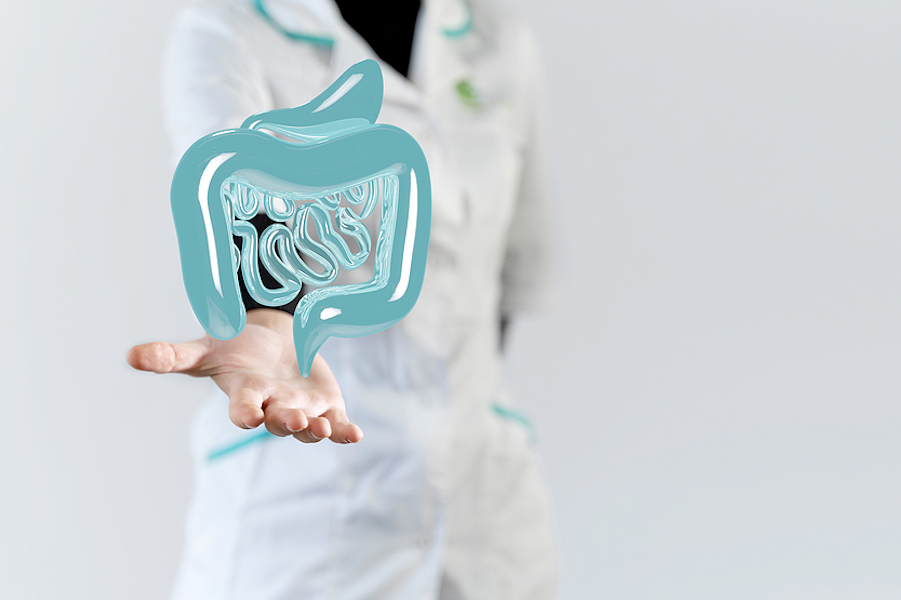Nature’s healing properties, found in plants, herbs, roots, and flowers have been an essential part of restoring health for centuries, long before we could reach for pills from grocery store shelves. Now, finally, the science of using botanical remedies to treat health conditions is finding its way back into mainstream medicine.
Phytotherapy, or medicine using herbs and plant materials, is helpful for many conditions, but especially digestive imbalance. It’s amazing how these natural materials can soothe symptoms of heartburn, nausea, bloating, gas, diarrhea, morning sickness and more. Not to mention it’s less toxic to the body! Let’s explore some of these herbal remedies and the way they help our GI system.
How botanicals soothe
Our digestive system is often referred to as our second brain. It is a key player in our nervous system functioning and is well connected to stress and anxiety. Our gut tells us a lot about how we are feeling and what is going on with us emotionally. That’s easily recognizable when we get butterflies in our belly, or nervous stomach, when we are anxious, or when we have surges of acid reflux when we are upset. When our digestion becomes disrupted from stress botanical nervines, or plant remedies, have a beneficial effect on the nervous system and offer digestive relief in several ways.
Botanical nervines reduce the stress response, which positively impacts our gut. The stress response happens when the sympathetic nervous system is triggered, turning off other bodily functions that are not required in an emergency. Even if it is not a true emergency, our body responds as if it is when we feel stress. When our nervous system is revved up, our bellies break down, and herbs can help correct this process.
While we still do not know exactly how these natural antidotes work, we do know that certain botanical nervines have complementary actions depending on what is going on in the body at a certain time. In other words, they have biphasic or adaptogenic effects helping them work as both relaxants and stimulants. Relaxant nervines help relax contracted or constricted tissues relative to the nervous system, and stimulant nervines stimulate the slow or stagnant tissues in relation to the nervous system. This is amazing! There are also many other types of botanical nervines that provide nutrition to the nervous system. These and all herbal remedies come in many different forms – capsules, teas, powders, tinctures, infusions and more. Here are some of the most common methods used to capture the healing properties of medicinal plants.
Forms of herbal preparations
Tisane (or tea): This is an herbal tea brewed in water from any plant materials other than the true tea plant (Camellia sinensis).
Tincture (or solution): This is an extract prepared by placing botanical plant material in a jar with a form of alcohol, vinegar, or glycerin, that is stored (and periodically shaken) for two weeks or longer to capture active healing constituents.
Decoction: mashed or ground up plant materials are boiled and then strained.
Infusion: similar to a tisane or decoction, an infusion is more potent. Botanical materials are steeped in oil or boiling water for an extended period of time.
These forms of herbal preparation are part of the natural process of utilizing phytotherapy to heal. Now let’s look at some of the best botanical remedies that work wonders to aid digestion.
Botanical nervines
- Peppermint (Metha x piperita, Mentha ssp.)
The use of herbs in the mint family, such as essential peppermint oil, may date back as far as ancient Greece. Thousands of years later, scientific research continues to validate its use as a digestive aid. It works by utilizing the aromatic oils and phenols that are present within the tiny glands scattered along the fuzzy stems and leaf surfaces of the plant. The enteric coating on peppermint oil capsules allows the oil to pass undegraded through the upper regions of the GI tract where it soothes, and to the lower intestine where it acts as a smooth-muscle relaxant. It can provide relief for irritable bowel syndrome (IBS), calm digestive spasms, relieve gas, and reduce pain and discomfort.
Peppermint tea may be the most widely used form of this herb. The flavor and aroma in peppermint tea add to the soothing effects on digestion. It’s even a great substitute for dessert. Its natural sweetness is a nice way to end the evening meal, and has no adverse reactions.
Topical use of peppermint can also provide healing relief. Soak a clean towel in hot water with a few drops of peppermint oil and rest the warm towel on your abdomen for 20-30 minutes two or three times daily. This comforting compress can help soothe bloating, and the aroma can also quell headaches and soothe the nervous system.
Note: Peppermint is usually well-tolerated at recommended dosages, but too much enteric-coated peppermint may have adverse effects. Please ask a qualified herbalist or naturopathic doctor for advice about dosage, especially if you suffer from kidney stones, hiatal hernia, or GI reflux.
- Chamomile (Matricaria recutita, M. chamomilla, Chamomilla recutita)
This botanical nervine is often referred to as “mother of gut,” and is a very popular remedy for digestive issues, even used in newborns to help soothe colic related to lactose intolerance. Scientific studies indicate that the extracts of dried chamomile flowers help with spasmolytic and anxiolytic effects, which together with chamomile’s antimicrobial and anti-inflammatory properties can treat acute and chronic GI distress. Although the studies on humans are limited, it has shown to be effective for cramps of the digestive organs.
There are numerous chemical compounds found in chamomile flowers, including apigenin, which is linked to GABA receptors in the brain, where it may help influence and calm our central nervous system. (Anti-anxiety drugs and barbiturates target GABA receptors and do their work there).
Chamomile can be used singly or in combination as a tincture, tisane, or homeopathically. Although it is considered safe and usually well tolerated, it may cause allergic reactions in those with sensitivities to the onion, celery, and sunflower families.
- Lemon balm (Melissa officinalis)…Rosemary (Rosmarinus officinalis)…Valerian (Valeriana officinalis)
Lemon balm is a member of the mint family, used for centuries to relieve dyspepsia, spasms, gas, and to induce calmness. Rosemary has similar effects, soothing spasms; the leaf is used to treat dyspepsia. Both of these plants contain a polyphenol compound known as rosmarinic acid. Many medicinal plants of different species share biochemical similarities in their active constituents.
Valerian carries the nickname “all-heal.” It is used in combination with other herbs to treat a range of GI symptoms, including IBS, constipation, gas, cramps, nausea, and viral gastroenteritis. But is is also known for its effects on nervous sleep disturbances as well as restlessness.
These botanical nervines are generally well tolerated to reduce symptoms of digestive imbalance. There are many other herbal aids that lend support to our digestive system, including the following common choices.
Other herbal aids for digestion
- Fennel (Foeniculum vulgare)
The leaves of this plant are widely used in Mediterranean and mid-Eastern parts of the world, rooted in traditional Ayurveda practices. Preparations from fennel seeds and leaves may not only help soothe symptoms, but may actually prevent heartburn, gas, bloating, and constipation. It may also promote the secretion of digestive enzymes that prompt diminished appetite. It is recognized as safe, and rarely causes side effects or allergic reactions. Also used for infants with colic, it is given in tea in combination with other herbs.
- Ginger root (Zingiber officinale)
The history of ginger root as a digestive aid is quite interesting. Its use as a medicinal property dates back to Emperor Shen-Nong in 2000 BC China. Since then, ginger root has remained in use to help calm the digestive tract, reduce nausea and vomiting, and strengthen the stomach and intestines.
Extensively studied worldwide for centuries, scientists have compiled much experimental data. The chemical compounds called ginger ales function as inhibitors of prostaglandins, or pro-inflammatory chemicals. The active constituents are thought to contribute to anti-nauseant, anti-ulcer, antioxidant, and anti-motion sickness and gastric secretory and anti-secretory qualities.
Used in the form of ginger root or ginger juice, ginger ale, ginger root power, or ginger tea, these formulations help pregnant women with morning sickness, people who suffer from motion sickness, and have even been used experimentally by astronauts in space!
Digestive bitters
Digestive bitters are made from aromatic herbs, barks, fruits, and roots, and formulated into a tincture, distillation, or an infusion. Bitters aid in digestion through enhanced production of digestive enzymes, soothing intestinal inflammation and irritation, and by nutritive support of the epithelial lining in the GI tract. Digestive bitters have a range of medicinal qualities, and the formulations have been handed from generation to generation.
Swedish bitters are well known throughout the western world and used for many indications. Its origins in 16th-century Europe offer many recipes combining botanical ingredients into tinctures and used as spirits. Preparations originally included aloe, myrrh, saffron, senna leaves, camphor, angelica root, and rhubarb root. Now they contain things from around the world, including turmeric, cardamom seed, milk thistle seed, fennel seed, dandelion root, gentian root, ginger root, and other ingredients. Citrus essences are often added for flavor.
Angostura bitters made from the bark of the angostura tree were originally used for belly ailments but are now included in many cocktail recipes. A few drops added to mineral water does make a tasty concoction to aid digestion, and is a good alternative to alcoholic beverages and sugary sodas.
Digestive herbs for life
These are just a few of the ways you can find digestive relief with botanical remedies. Phytotherapy is an age-old and tried mechanism to help heal the gut. These remedies are still being researched and cultivated to improve their effects as antidotes to the mild GI upset that we all occasionally experience. As always, if symptoms persist or change, be sure to visit your practitioner for proper guidance. Treatments using botanical medicine can be as individual as you are, so it helps to work with a practitioner of functional or Oriental medicine, a naturopath or herbalist. More serious digestive disorders including chronic acid reflux, Crohn’s disease, peptic ulcers or parasitic infections, necessitate help from a qualified practitioner to ensure safety and success.







